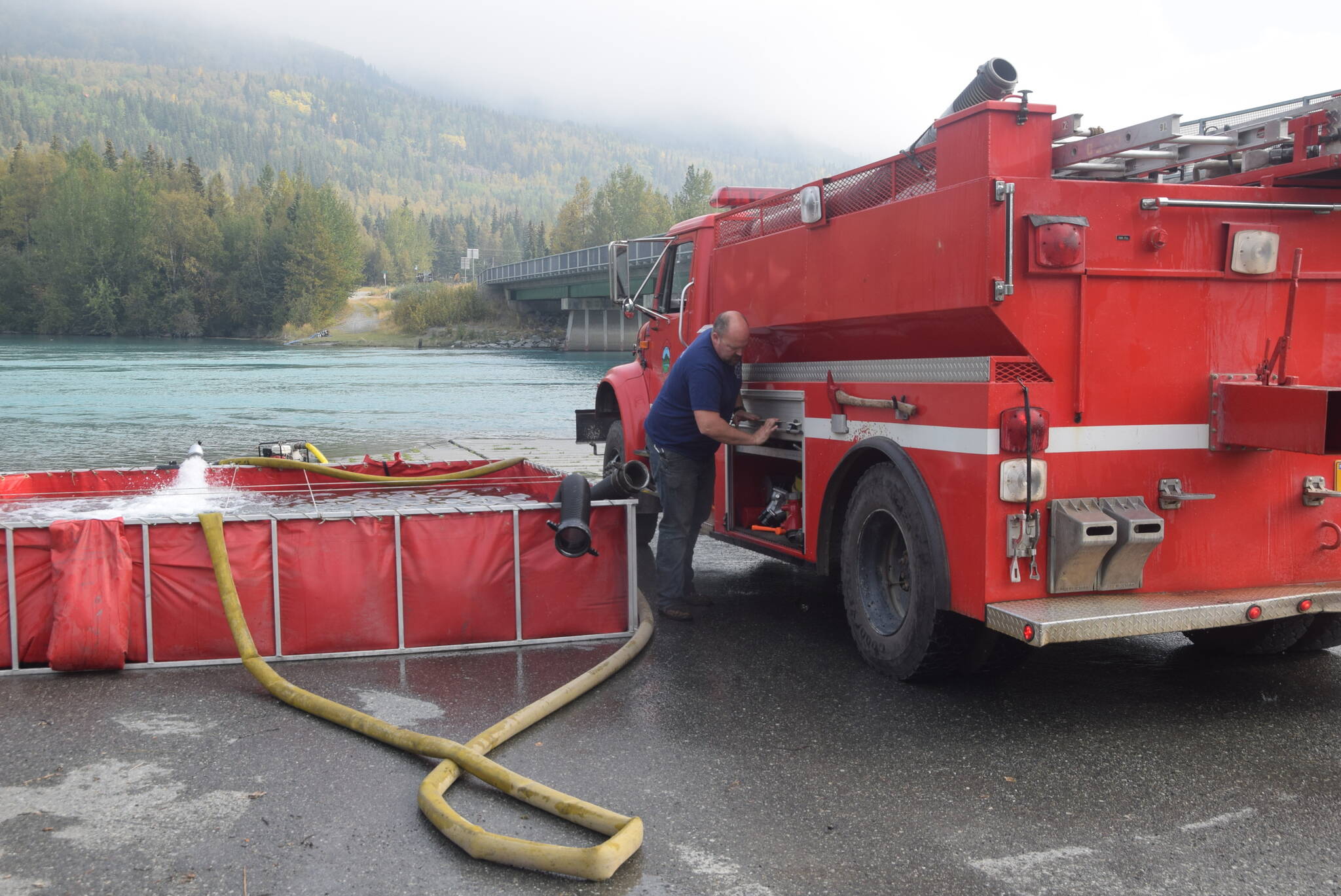Cooper Landing residents could decide this fall whether or not to formally establish an emergency service area for the region following a Tuesday vote by Kenai Peninsula Borough Assembly members to initiate the process.
The community is currently served by Cooper Landing Emergency Services, a volunteer organization established in 1973, and has expressed interest in formalizing those services with the borough. If an emergency service area is created, the agency would get the ability to levy property taxes on residents to support its operations.
Cooper Landing Emergency Services currently operates as a 501(c)3 nonprofit organization, which means it cannot collect property taxes toward an annual operating budget. Rather, the agency says it relies on ambulance billings, donations, grants and other gifts to support operations.
A proposed map of the area shows that the boundaries would include land around the Sterling Highway — currently served by Cooper Landing Emergency Services — as well as a buffer zone around the Cooper Landing Bypass Project. That project will add 10 miles of new road off of the highway and aims to reduce traffic congestion through Cooper Landing.
Multiple Cooper Landing Emergencies Staff members testified in support of an emergency service area for the region, including Chief Dan Osborn and Deputy EMS Chief Clay Adam. Both said that demand for services has gone up since the agency was established in 1973 and that consistent funding would allow them to maintain the level of service residents have come to expect.
Adam said the agency’s budget this year was about $232,000, not including capital expenditures. The agency has recently had to replace aging equipment, including a $350,000 fire truck, as well as an ambulance. Those costs were partially offset by a six-figure donation from a Cooper Landing community member and by grants.
“We have to find other revenue streams to maintain our viability and I think that just by giving the citizens of Cooper Landing the opportunity to vote, whether we become a service or not, I think we should be given that opportunity,” Adam said. “Whether it passes or not, I want the citizens of this community to hear the facts and know the challenges that we face.”
Adam estimates that the capital expenditures the agency expects to encounter in the next five to 10 years is “roughly in the $400,000 range.”
A community petition included with Tuesday’s assembly packet included signatures in favor of the move from roughly 50 residents.
Passage of the resolution kicks off a process that will culminate in a vote by residents of Cooper Landing this fall on whether or not to create a service area. Next steps include development of a report by Borough Mayor Peter Micciche and a public hearing in the community. Borough legislation creating the service area is subject to voter approval.
Assembly members debated whether creating a service area was the most effective way to solve the problems identified by Cooper Landing Emergency Service. The body considered postponing the legislation, however, borough staff said a delay could make it difficult to meet the deadline to get the question on the next municipal ballot.
“It’s already tight, and it would make it near impossible,” said Borough Attorney Sean Kelley.
Assembly member Peter Ribbens, who was the only person to vote against the resolution, said the borough could explore other ways of addressing Cooper Landing Emergency Services’ needs without levying new taxes on area residents.
Micciche also questioned whether residents should front the cost for the influx of summer service calls in the area and said there could be a way to combine existing service areas in a way that creates efficiencies.
“I personally don’t feel like the people of the Kenai should be solely responsible for 20,000 (vehicles) that traverse the Sterling Highway, where we’re responsible for paying for that response,” Micciche said.
Regardless of whether or not the resolution passed, Micciche said, he wants to support the first responders in the area.
Both Assembly President Brent Johnson and resolution sponsor Cindy Ecklund, who represents Cooper Landing, reiterated that passing the resolution doesn’t create the service area, but rather starts the process that could result in the creation of a service area.
“I think we can start the process and let the Cooper Landing residents make that decision,” Ecklund said.
The assembly ultimately voted 7-1 in favor of starting the process of establishing an emergency service area, with Ribbens voting in opposition.
Tuesday’s meeting can be streamed in full on the borough’s website at kpb.legistar.com.
Reach reporter Ashlyn O’Hara at ashlyn.ohara@peninsulaclarion.com.
Correction: This story has been updated to clarify that Cooper Landing voters may be given the option to vote on whether or not to establish an emergency service area for the region.

